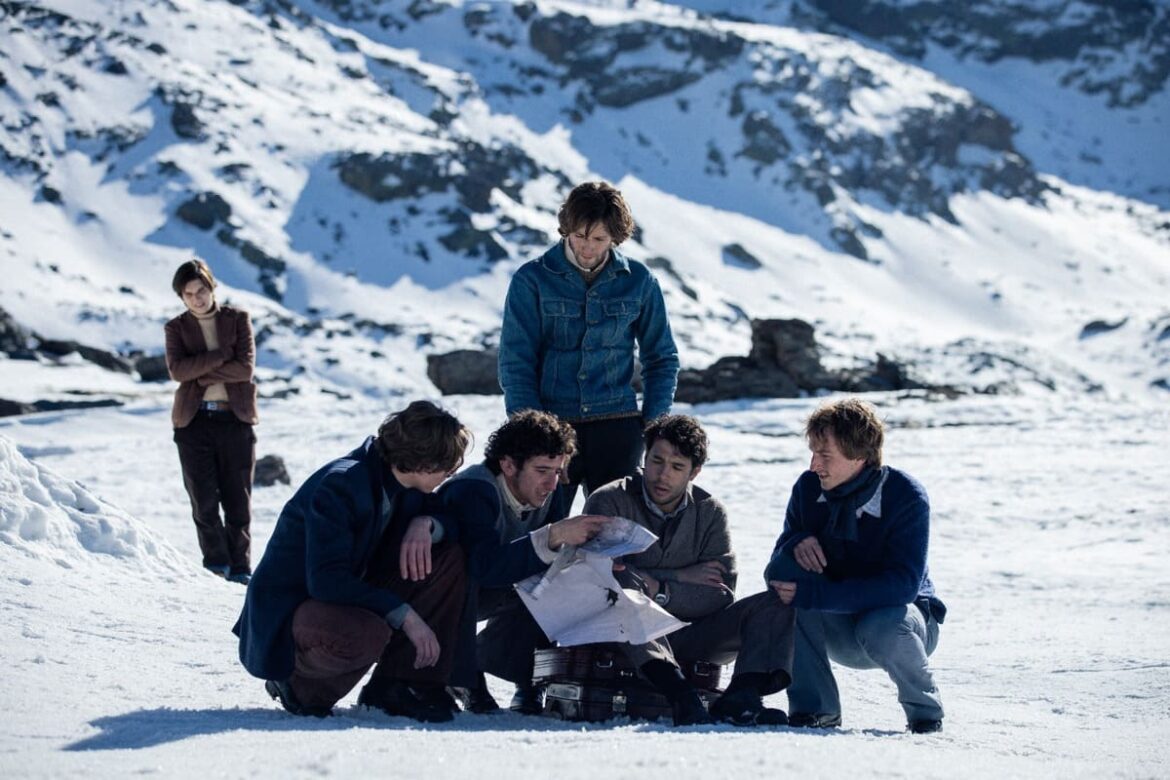In addition to an understandable bout of national pride (eating a hit Netflix’s Netflix movie, excellently directed by a filmmaker from Barcelona and with a technical sheet full of Catalan surnames), the success of Society of the Snow is explained by the method with which Bayona has converted the original book by Pablo Vierci into a film where survival has nothing to do with epic and nothing to do with heroism. Unlike the grimy film Alive by Frank Marshall – shot in 1993, in times of capitalist Olympianism and when the self made man and the Young but well prepared set the agenda of the Western imagination -Bayona has exercised the skill of explaining the famous accident of flight 571 in the Andes against the backdrop of a world where everyone has already accepted with parsimony that, in order to survive, sooner or later one will have to eat a fellow human being until only his bones are left.
Society of the Snow digests normalized (but at the same time traumatic) aspects of our existence such as the influence of chance in the development of life, the impossibility of having a peaceful relationship with a nature as beautiful as it is hostile, the atheism according to which faith is of no fucking use when even divinity forgets about your own existence and, it must be insisted, the slap in the face that comes with accepting that in this world you will be forced to literally digest otherness in order to move on. There is one detail that may go unnoticed by the viewer of this magnificent film, and that is how Bayona has turned the surviving anthropophagy of the Old Christians Club rugby team into a practically Eucharistic ritual (it is not necessary to be a genius of Christian iconography to see how the players, as they secure their lives, acquire the bodily form and the prototypical wounds of Jesus Christ).
Far from provoking dread or sugary admiration, the misfortune suffered by these young people has struck us deeply because -who knows if in an unconscious way- we have been deeply shocked by their misfortune. the screenwriters of the film Society of the Snow wanted to highlight how happiness can also arise in the most radical isolation and in an environment where nature expresses itself in an arbitrarily violent way. To live in Society of the Snow is to accept a Darwinism that sooner or later will eliminate the brains less adaptable to pain (the dead are dispatched with a simple typography; the living will be immortal by becoming icons through an image) and even to feel some envy for those moments of perfect communal solitude in a still virgin landscape, without any contamination. Any accident is a disgrace, but nowadays it would be interesting to plot a survey on whether any of us would pay to get on that plane.
To live in Society of the Snow is to accept a Darwinism that sooner or later will eliminate the brains that are less adaptable to pain.
Bayona exploits this mixture of revulsion and envy for the survivors very well, and radicalizes the contemporaneity of this film in the final scenes of the footage, when – aware that they will soon be released – the rugby players start to become selfies and polish their hair, knowing perfectly well that they have started a stardom notoriously adaptable within the new world of mass entertainment. The ability to survive, at the limit, is no longer linked to the strength of a group to stay together, but to the post-traumatic acceptance of individuals aware of having become a marketable story. In this sense, I dare to think that – in my imaginary survey – many citizens of the world would not hesitate to get back on the 571 to have even the slightest chance of going down in history, even if it meant burying a sister or eating some fraternal liver.
Bayona has given birth, in this sense, to a very appropriate contemporary art product. If Spielberg had filmed it, of course, it would already be a clear favorite to win a handful of statuettes. But being born in Barcelona is still not as valuable as the Jewish patina. And look how, by surviving and pull each other to move forward, we are surely the tribe that treasures the most knowledge in the world.











